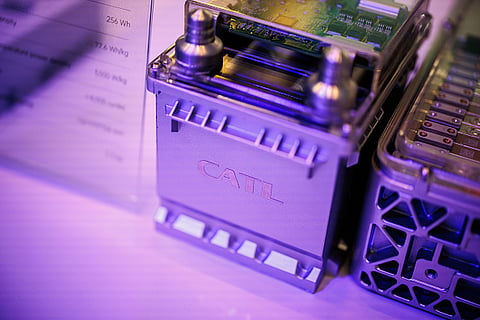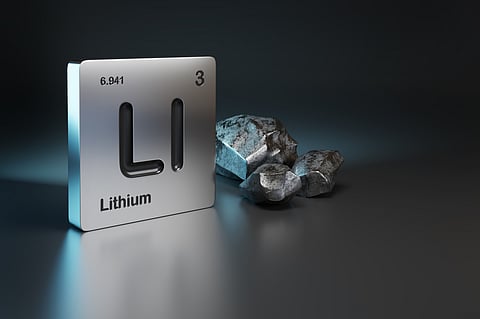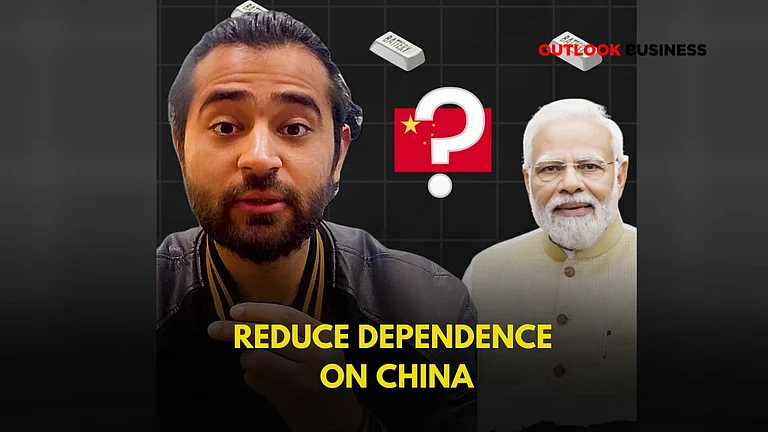CATL halts lithium mine production for three months after permit expiry, impacting 11% of global lithium supply.
Market reacts with price spikes amid fears of further Chinese mining suspensions and tightening supply chains.
Prolonged shutdown risks global lithium prices, affecting EV manufacturers worldwide, despite CATL’s claims of limited short-term impact.
China’s Lithium Clampdown Sends Shockwaves Through Markets
The world’s largest electric-vehicle battery maker has halted production at a major Chinese lithium mine, raising questions over global supply amid Beijing’s capacity-regulation measures
The world’s largest electric-vehicle battery maker, Contemporary Amperex Technology (CATL), has temporarily halted production at a major lithium mine in China’s Jiangxi province for at least three months. CATL suspended operations after it failed to extend a key mining permit that expired on August 9, reported Bloomberg.
On August 8, traders went to unusual lengths to get clarity on the situation when they (traders) flew drones over CATL’s Jianxiawo lithium mine in Yichun, Jiangxi province, to check the state of operations days before the permit expired, indicating acute supply anxiety in the market. The mine produces about 6% of the world’s lithium and, together with other nearby mines in the region, accounts for at least another 5% of global supply.
Market Reacts to Shutdown
The prices and stocks for lithium jumped on August 11 after CATL confirmed the halt of operations at a major mine in China, leading to speculation that Beijing might be the next to suspend other projects as it tackles overcapacity across the economy.
The halt aligns with China’s recent “anti-involution” push, where investors are betting on industries and companies that might benefit from Beijing’s effort to tackle falling prices and overcapacity. The trend covers sectors from e-commerce to EVs and steelmaking.
“We believe this could be part of the government’s anti-involution initiative,” US-based global investment bank Citigroup analysts said in a note. Closures in Yichun “should help China to re-price its strategic resource in the long-run, and the government can ensure lithium is mined and extracted in a proper and compliant way.”

Lithium refineries near Yichun had been informed of the closure. While CATL continues talks with the government agencies to secure a renewal, it is preparing for the possibility that the shutdown will last for months. For the lithium industry, which has faced an oversupply for two years, removing a big producer from the picture could help the wider market by increasing the prices as a result of fewer supply.
The lithium industry has been plagued by extreme volatility in spot prices, futures markets and equity markets in recent weeks, with the Jianxiawo operation in particular focus, given questions over its permit renewal.
The Chinese company said the halt would have little impact on its overall operations. The company supplies batteries to leading automakers worldwide, including Tesla, Ford and Volkswagen. However, analysts warn a prolonged disruption could send ripples through the global lithium supply chain, possibly influencing EV costs worldwide. China is the world’s largest refiner of lithium and disruptions in its processing capacity could affect global pricing and availability.
“For CATL we do not expect any meaningful operational impact to battery production from the Jiangxi mine suspension,” Eugene Hsiao, head of China equity strategy at Macquarie Capital told Bloomberg. “The concern from the mine suspension is less on CATL and more on if the broader lithium supply chain can see tighter capacity and if this will be coordinated via Chinese government actions,” he added.

Future Supply Chain Risks
Like many Chinese battery companies, CATL has aggressively invested in minerals from lithium to nickel and cobalt in order to lock in long-term supplies and lower costs to bolster China’s ambition of becoming the world’s leading electric vehicles (EVs) manufacturer.
However, even before the suspension, CATL’s mining revenues were under strain. In 2024, CATL's battery raw material business saw a 29% decline in revenue, reflecting the company's difficulties with mining investments. Although CATL purchased mine stakes (even outside of China) to secure supply and control costs, the recent sharp decline in lithium prices and permit issues are putting those decisions to the test.

The global demand for lithium-ion batteries will increase almost seven-fold, reaching 4.7 terawatt-hours by 2030. Much of this demand will be driven by batteries for mobility applications, such as EVs, according to a 2023 Mckinsey & Company report.
How CATL navigates the current disruption will not only shape its own supply security but could also influence the broader trajectory of global lithium markets in the years ahead.

